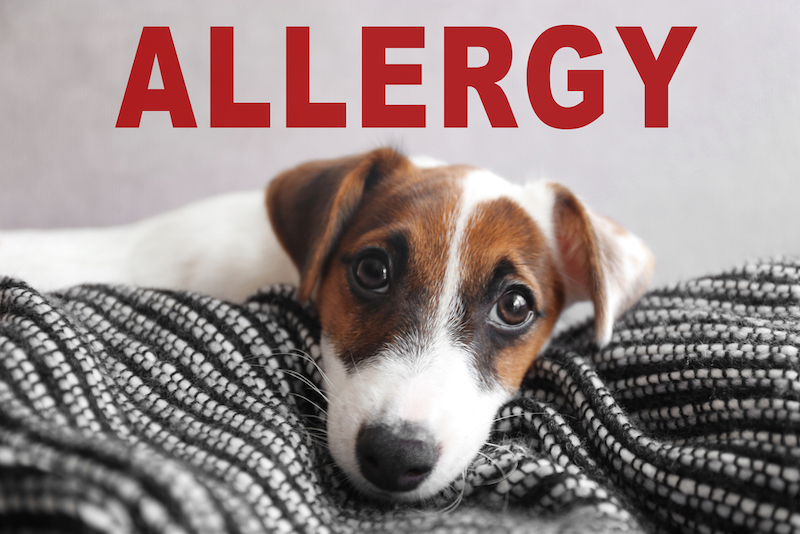6 Ways to Treat Allergies in Dogs
Branded Content by Cosmic Press
You’re not the only one fighting off sniffles, scratchy eyes, and other allergy symptoms at certain times of the year. Dogs have been known to suffer from allergies as well, which can take a toll on their quality of life if left unaddressed.
Allergies in dogs act a bit differently than humans, but they’re no less annoying – your dog would complain if they could! Luckily, there are proven ways to treat doggie allergies to ensure they breathe, manage histamine levels, and strengthen immunity overall.
1. Identify the Cause
Concerned dog parents are likely to leap to conclusions when their pup shows any sign of discomfort. However, it will benefit everyone to take a step back and determine what’s going on before making diagnoses and prescriptions.
Allergies can happen for several reasons, including genetic traits that cause reactions to environmental factors or an immune response that has developed over time.
Some dogs may develop allergies as early as six months old, while others will only show signs in their later years. Conversely, those early-life allergies may disappear over time as they increase exposure to the allergen.
Use all available resources to figure out what’s causing your dog’s allergies and the symptoms, and use those detective skills to reach a conclusion with or without the help of a vet.
2. Fight Off Fleas
Flea allergies are far too common for dogs of all breeds and backgrounds, so make this one of the priorities on your to-do list. Also, if you haven’t been keeping up with your dog’s flea treatment in recent months, let this be a reminder that it’s not an optional task!
Not only do fleas carry infectious diseases and cause inflammatory reactions on the skin, but they also reduce your dog’s immune response over time and make them more vulnerable in the long run.
Do whatever it takes to rid your dog of fleas and take steps to ensure they don’t return.
3. Avoid Certain Locations
Does your dog seem to have allergy outbreaks after visiting certain parks around town or going to doggy friends’ homes for playdates? It may be that certain mold spores, pollens, and other airborne entities are causing those allergies whenever you take those trips.
The key here isn’t to just stay home and avoid all interaction. Instead, monitor your dog’s behavior more closely when you make trips to various locations and see how they react.
From there, you can piece together the potential cause of the allergies and formulate a solution.
4. Change Up the Diet
It isn’t surprising that most commercial dog food is far from healthy. But unfortunately, there is an entirely different set of regulations for the animal feed industry.
The result may be that a twice-daily portion of kibble is the secret cause of inflammation, digestive issues, cursing, wheezing, or other symptoms that surface as allergies.
A dog must eat, of course, so research alternative food options that contain more natural ingredients and may not cause these sorts of reactions. In the meantime, you can serve some easy homemade chow in the form of chicken and rice and keep a record of the outcome.
We know the vast impact healthy eating can have on humans, and it’s no different for dogs.
5. Address Environmental Issues
Some of the biggest culprits for allergies are in our homes, even if we think we’re diligent about cleaning and upkeep. Dust and debris can accumulate in unreachable corners of the kitchen, bedroom, and everywhere else, causing unseen problems in the air.
This might signal that it’s time for a deep clean or that you should take a more active approach to manage air quality in the home.
Humidifiers, dehumidifiers, ventilation systems, and filters can make a significant difference for you and your dog, especially if there’s more than one pet in the house.
6. Use Powerful Supplements
While you’re doing all you can to discover and treat the cause of your dog’s allergies, that furry friend needs relief in the meantime. This is where allergy chews for dogs can be hugely beneficial, allowing for much-needed breathing room.
The most effective allergy support products are designed with dogs in mind, helping maintain histamine levels, boost immune defense, and soothe skin-related issues to limit scratching.
Some situations where allergies just can’t be avoided, so smart owners will keep some of these powerful allergy chews nearby for quick and effective comfort.
Get Your Dog Feeling Great
As an owner, you want the best for your dog in all respects! Quality food, plenty of exercises, and more than enough love. But when allergies strike, you’ve got to have a game plan.
Use this list of tips to conquer doggie allergies head-on and have a strategy for every situation.
Branded content furnished by our promotional partners. The Daily Sundial editorial staff is not involved in its production. Content does not reflect the views or opinions of the editorial staff.





